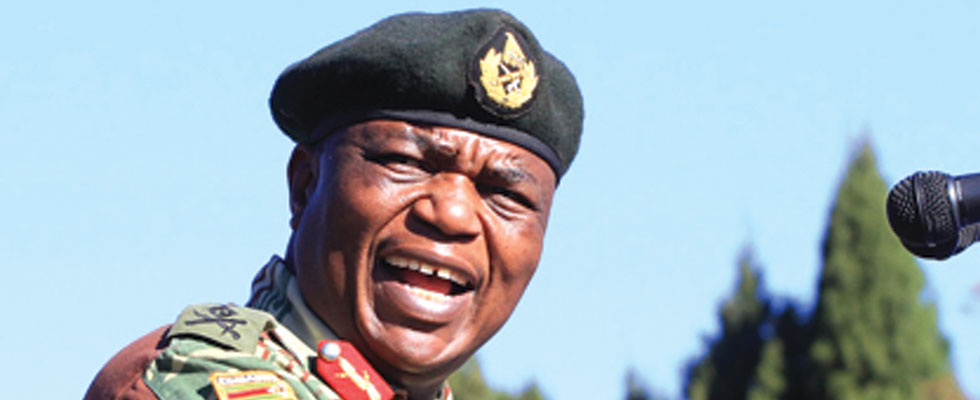
RECENT findings by research think-tank Afrobarometer indicate that the public trusts the national army; but it also reveals citizens’ disdain for military rule, Mass Public Opinion Institute (Mpoi) director Eldred Masunungure said last week.
BY RICHARD CHIDZA
Masunungure’s interpretation comes in the wake of howls of denials from the opposition and disagreements among political analysts over the findings of the 2014 survey carried out in partnership with Mpoi.
“While Zimbabweans said they trust the military, they are very clear they do not want the army anywhere near the country’s political architecture. They do not want the military anywhere near State House, as governors or rulers,” he said, adding that part of these findings have not yet been made public.
“Trust or no trust in institutions such as the military is based on either pleasant or unpleasant encounters with the army. Except for the 2008 scenario in which the army was actively involved in the country’s political set-up, they have tended to stay in barracks.”
Masunungure acknowledged criticism that the survey was carried out in an undemocratic environment which would “contaminate” the results of the research as respondents may have given answers that were motivated by fear.
“The criticisms of the environment are valid but not unique to Zimbabwe because there will always be external contamination of surveys in any given situation,” he said.
“We include factors such as fear that may be heightened in countries such as Zimbabwe where the respondents could be afraid of what might happen to them after responding to surveys. But when people are fearful they refuse to answer altogether and we call them reticent. If the number of reticents is high, it will be an indication of the level of fear in that country.”
- Chamisa under fire over US$120K donation
- Mavhunga puts DeMbare into Chibuku quarterfinals
- Pension funds bet on Cabora Bassa oilfields
- Councils defy govt fire tender directive
Keep Reading
The University of Zimbabwe political science lecturer could however not provide the figures of the “fear-factor” in the contentious survey.
Political scientist Ibbo Mandaza was scathing in his analysis of the research findings.
“It does not conform to reality. The survey’s methodology is out of sync and out of touch with the reality on the ground. The study is foolish and dangerous,” Mandaza said.
Opposition parties seemed to agree with Mandaza while NCA leader Lovemore Madhuku described the findings as “nonsense” and accused Afrobarometer of “abusing its name”.
However, another analyst Pedzisai Ruhanya gave the findings his seal of approval.
“The findings by Afrobarometer are not surprising, especially relating to the issue of public trust to the opposition parties. There are no compelling reasons why the public should trust an opposition that is in disarray and practising political skulduggery,” Ruhanya said.
“They cause an election and refuse to take part in it, so why should the public trust such organisations, the results are spot on. There is a lot of morbid symptoms within the opposition; there is a lack of leadership. Zimbabweans have turned to ‘better the devil you know’ than someone whose capacity they have no idea of, that is why they are trusting the army.”
Added Ruhanya: “Despite the economic problems, there is political stability and peace in the country and it is because of such issues that people trust Mugabe and his institutions. The illegitimacy claim is phantom. In fact, there is regime stability and opposition instability. The opposition must take heed and put its house in order. There is lack of internal cohesion within the opposition ranks.”
In response to questions from The Standard, Mpoi agreed that public opinion was “fluid and is swayed by socio-economic and political developments of the day”.
“At the time of the survey in November 2014 that is what the public sentiment was on a number of issues that were the subject of inquiry. Given the changed circumstances from the time of the survey to date, it’s possible that we might get different perspectives on similar issues if we were to carry out a similar study today,” the research group said.
But they quickly added: “Given our rigorous scientific survey methodology, we would get more or less similar results if we were to do the survey today under the conditions that were obtaining at the time of the survey [November 2014]”.
Afrobarometer raised dust after its report revealed President Robert Mugabe and a host of controversial institutions such as the Zimbabwe Electoral Commission, the army, police and the Zimbabwe Revenue Authority reportedly commanded more trust than the country’s political opposition.










